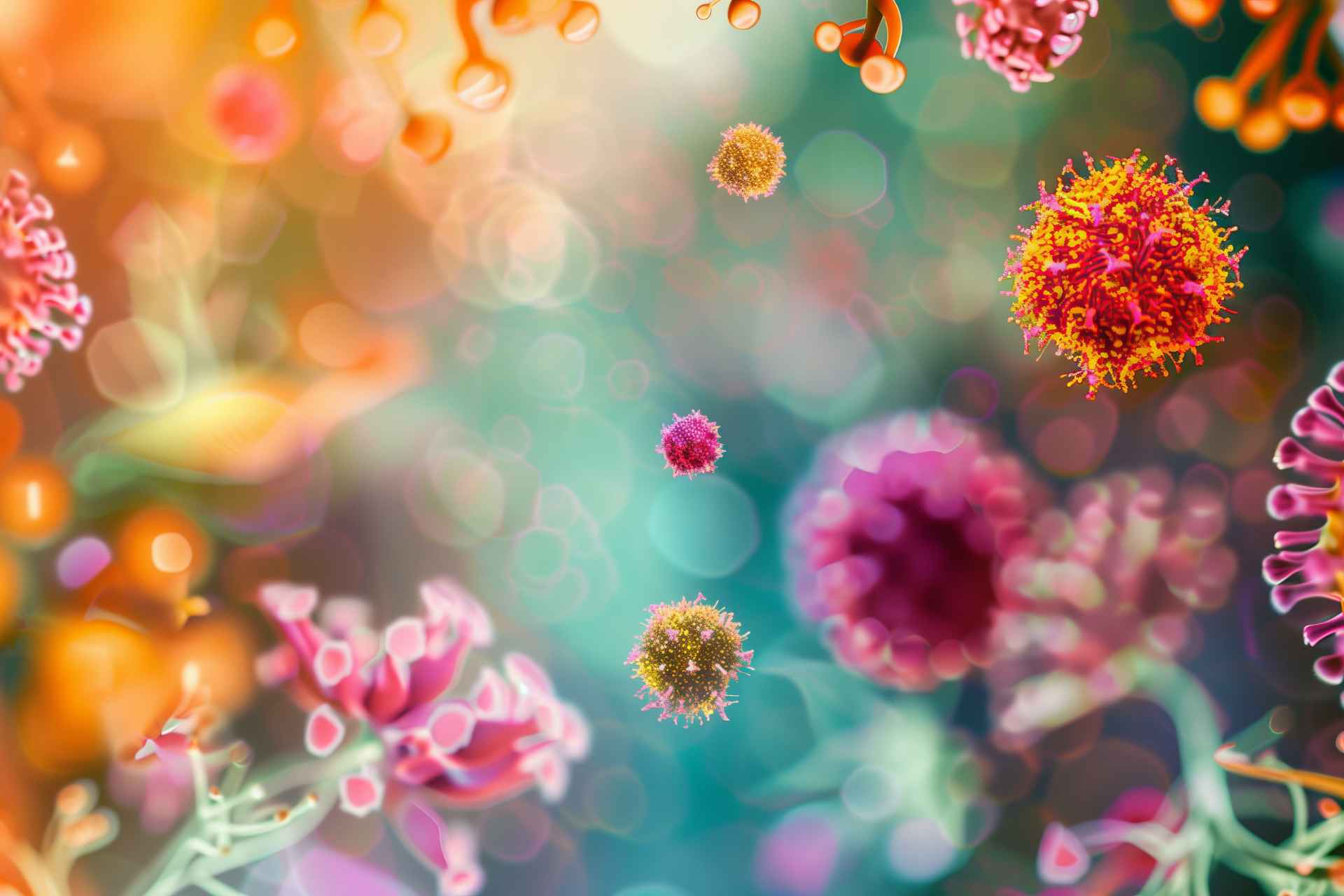What is already known
The rapid rise of antibiotic-resistant bacteria is a major threat to healthcare. Antimicrobial peptides, short amino-acid chains known for their potential as new antibiotics, offer a promising solution due to their broad-spectrum activity and low resistance rates. However, discovering new antimicrobial candidates has proved challenging, as it mainly relies on natural organism screening.
What this research adds
Using AI to analyze more than 400,000 proteins from the gut microbiotas of nearly 2,000 people, researchers predicted which genetic sequences might have antimicrobial properties, discovering a new class of compounds with unique characteristics. After testing 78 synthesized peptides against commensal bacteria and pathogens, the team found that most of them inhibited bacterial growth. One candidate, called prevotellin-2, was as effective as polymyxin B, a last-resort antibiotic.
Conclusions
The findings highlight the potential of the human gut microbiota as a source for new antibiotics.
The rapid rise of antibiotic-resistant bacteria, which leads to a decline in effective treatments for many infections, is a major threat to healthcare. A recent survey of the gut microbiotas from nearly 2,000 individuals has uncovered dozens of potential new antibiotics.
The findings, published in Cell, highlight the human gut microbiota’s promise as a source for novel antimicrobial compounds.
“One of our primary goals is to mine the world’s biological information as a source of antibiotics and other useful molecules,” says study senior investigator Cesar de la Fuente-Nunez at the University of Pennsylvania in Philadelphia. “Rather than relying on traditional, painstaking methods that involve collecting soil or water samples and purifying active compounds, we harness the vast array of biological data found in genomes, metagenomes and proteomes.”
Antimicrobial peptides, short amino acid chains known for their potential as new antibiotics, have shown promise in fighting antibiotic-resistant bacteria due to their broad-spectrum activity and low resistance rates. However, discovering new antimicrobial candidates has proved challenging, as it mainly relies on natural organism screening.
De la Fuente and his collaborators hypothesized that competitive environments, such as the human gut, could harbor many yet-to-be-discovered antimicrobial compounds. To predict genetic sequences with possible antimicrobial properties, the researchers used AI algorithms trained on existing antibiotics to scour the genetic material obtained from the gut microbiotas of nearly 2,000 people.
Mining gut microbiotas
By analyzing more than 400,000 proteins, the researchers predicted which genetic sequences might have antimicrobial properties. They then synthesized 78 small antimicrobial peptides from such genetic sequences and tested them against 11 pathogens and 13 common gut bacteria.
More than 30% of the small antimicrobial peptides killed at least one pathogen, but none targeted Staphylococcus aureus. About half of the peptides showed antimicrobial activity against at least one gut commensal, and most showed antimicrobial activity against pathogens or commensals.
Prevotellin-2, a small antimicrobial peptide predicted to be encoded by Prevotella copri, showed antimicrobial activity against Acinetobacter baumannii and against a different strain of P. copri. Prevotellin-2 was as effective as polymyxin B — an antibiotic used to treat multidrug-resistant infections, the researchers found.
Path forward
The analysis revealed that the peptides identified have a different makeup compared to what is usually regarded as antimicrobial. “The compounds we have discovered constitute a new class, and their unique properties will help us understand and expand the sequence space of antimicrobials,” says study lead investigator Marcelo Torres.
To understand how these peptides kill microbes, the team tested whether they disrupt bacterial membranes. Using fluorescence assays, they found that while small antimicrobial peptides generally did not damage the outer membrane of bacteria as much as traditional antibiotics, they are effective at disrupting the microbes’ inner membrane, which is crucial for survival.
Most small antimicrobial peptides weren’t toxic to human intestinal cells, but some were toxic to skin cells. The results emphasize the importance of choosing peptides carefully for treatments to avoid damaging human cells, the researchers say. “Mining the human microbiome for new and exciting classes of antimicrobial peptides is a promising path forward for researchers and doctors, and most especially for patients.”









